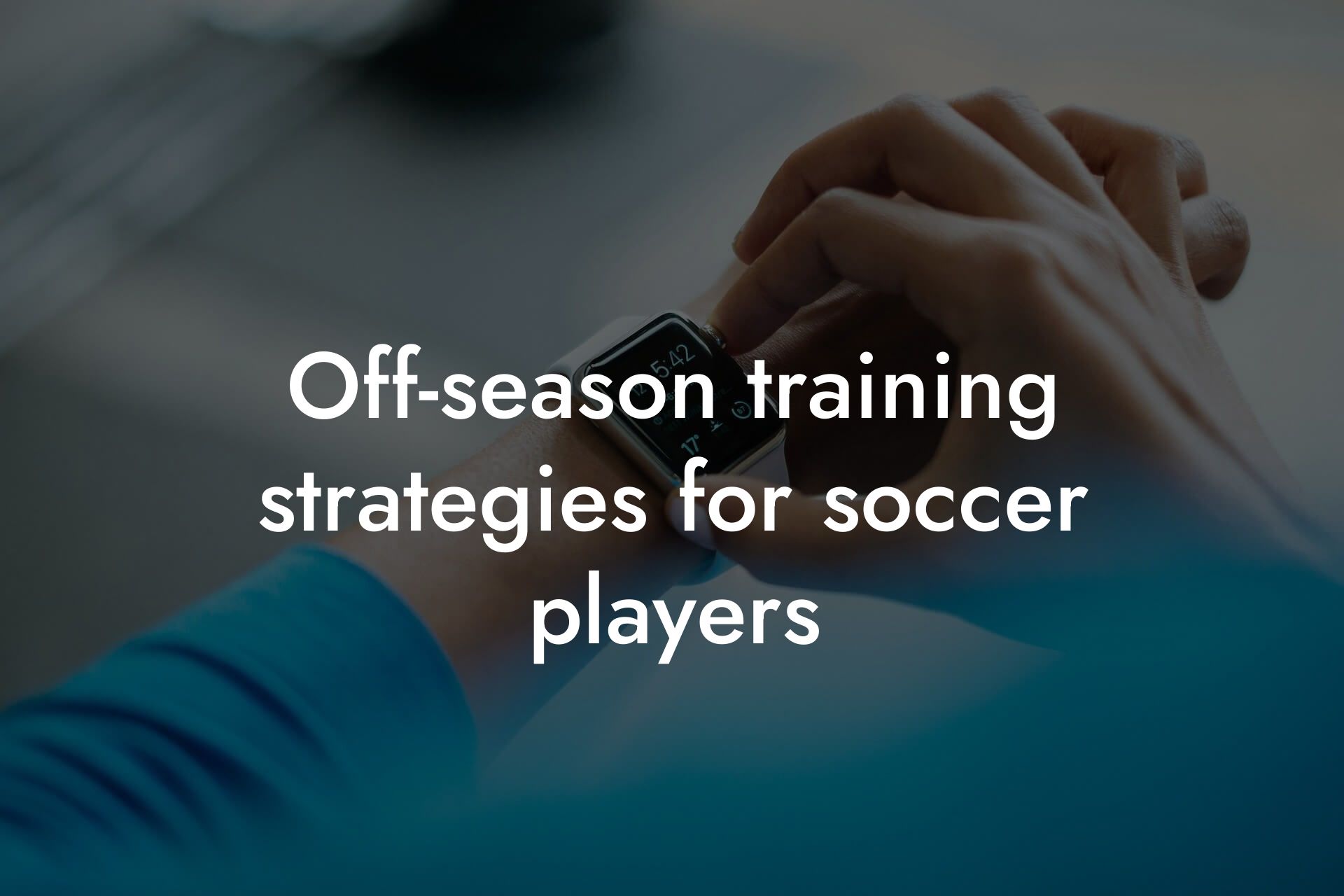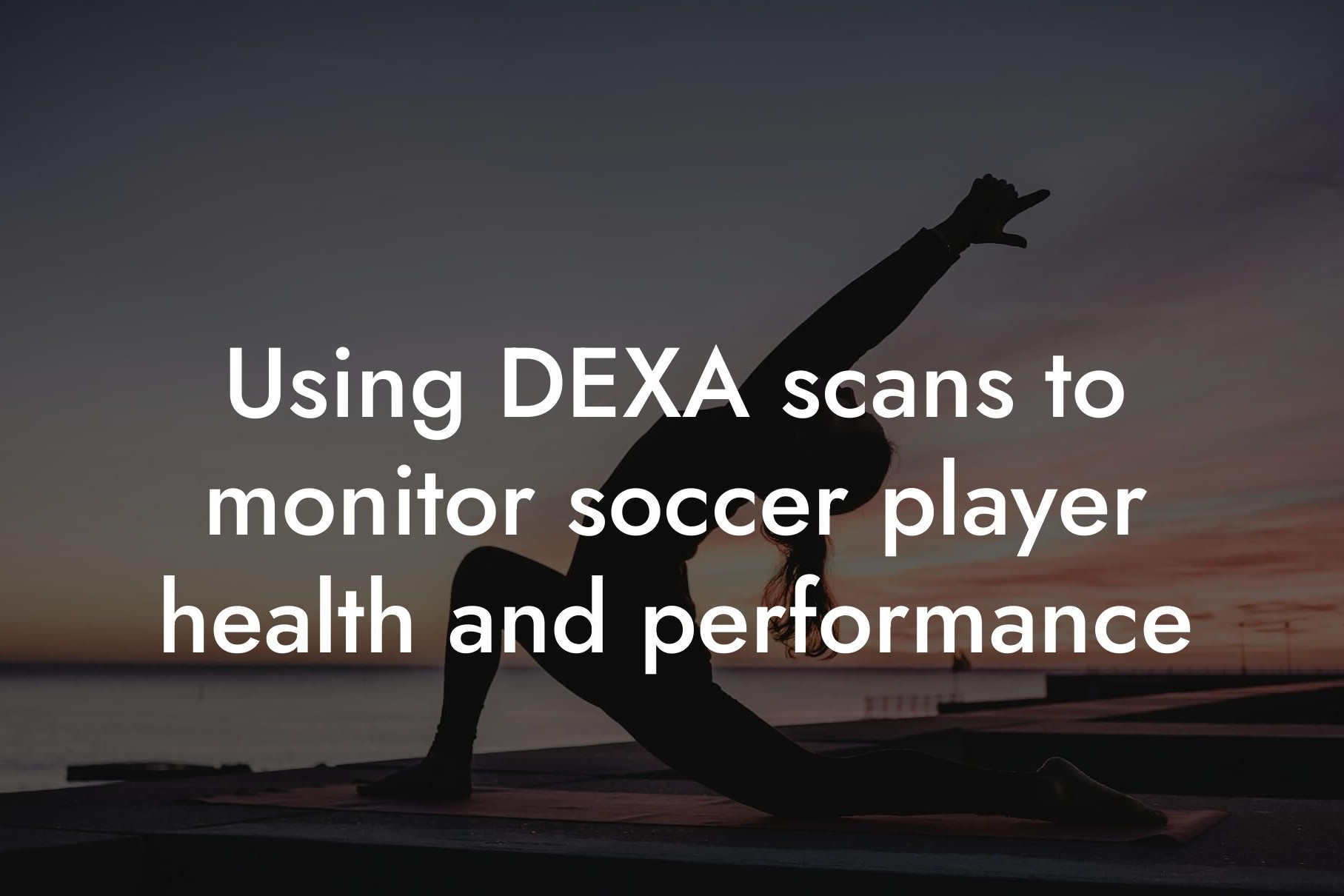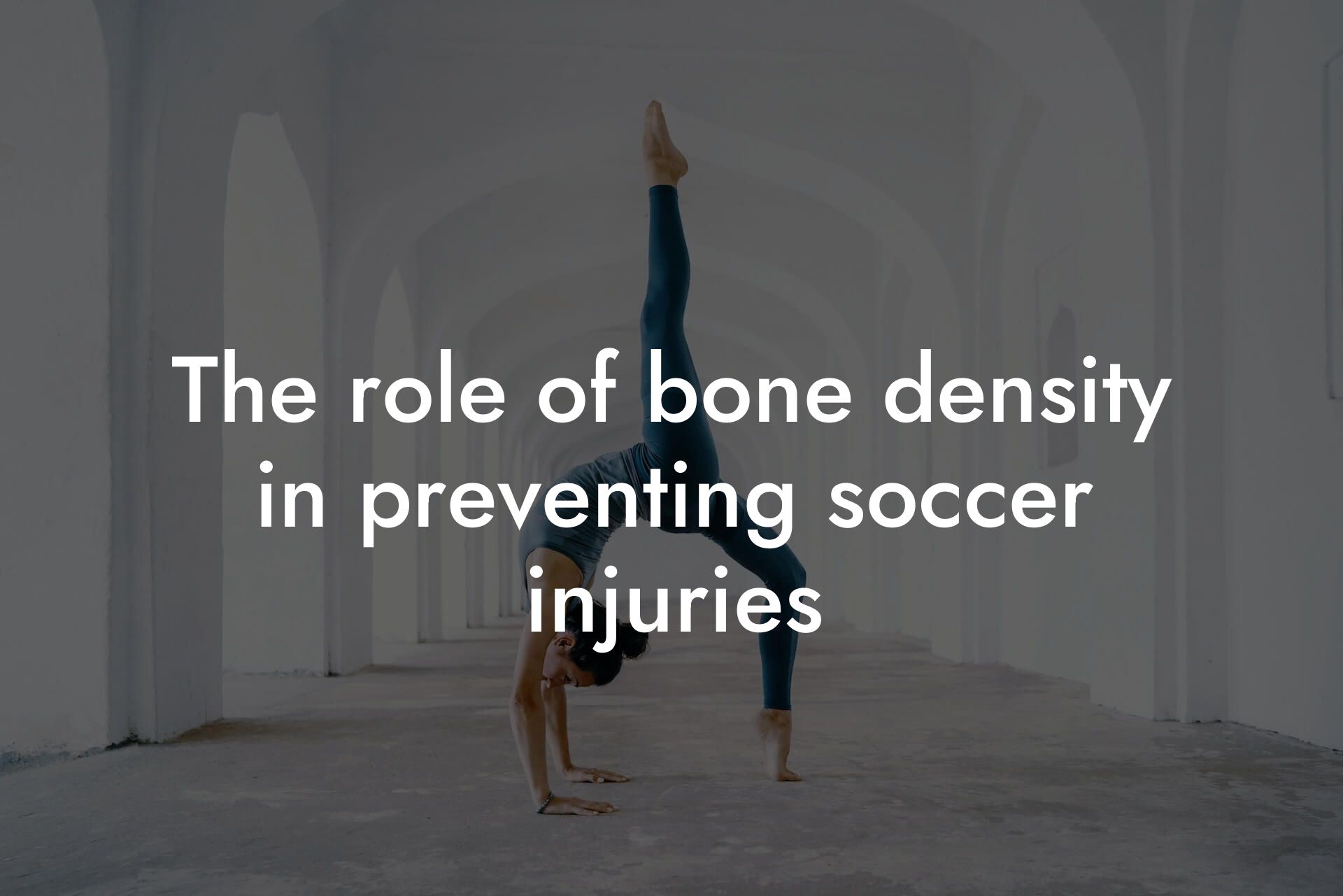As a high-earning professional, you understand the importance of maintaining a healthy physique to perform at your best on and off the field. As a soccer athlete, proper hydration and recovery strategies are crucial to optimize your performance, prevent injuries, and accelerate your progress. In this article, we'll delve into the essential hydration and recovery tips tailored specifically for soccer athletes like you.
Table of Contents
Why Hydration Matters for Soccer Athletes
Hydration is often overlooked, but it's a critical component of a soccer athlete's training regimen. Even mild dehydration can impair physical performance, leading to decreased speed, strength, and endurance. Soccer players lose a significant amount of water and electrolytes through sweat, which can result in dehydration if not replenished adequately. Dehydration can cause symptoms such as fatigue, dizziness, and headaches, ultimately affecting your game-day performance.
How to Hydrate Effectively
To stay hydrated, soccer athletes should aim to drink at least 8-10 glasses of water per day. However, this can vary depending on individual factors such as climate, intensity of training, and personal sweat rate. Here are some hydration tips to keep in mind:
- Drink water regularly throughout the day, rather than consuming large amounts at one time.
- Monitor your urine output and color; if it's dark yellow or you're not urinating frequently enough, it may be a sign of dehydration.
- Incorporate electrolyte-rich drinks, such as sports drinks, into your hydration routine, especially during intense training sessions or games.
- Avoid sugary drinks and caffeine, which can exacerbate dehydration.
The Importance of Electrolytes for Soccer Athletes
Electrolytes, such as sodium, potassium, and calcium, play a vital role in maintaining proper hydration and nerve function. During intense physical activity, electrolytes are lost through sweat, which can disrupt the body's delicate balance. This can lead to muscle cramps, fatigue, and dizziness. To replenish electrolytes, soccer athletes can:
- Consume electrolyte-rich drinks, such as sports drinks or coconut water, during and after training sessions.
- Incorporate electrolyte-rich foods, such as bananas, avocados, and nuts, into their diet.
- Consider using electrolyte supplements, such as tablets or powders, in consultation with a healthcare professional or registered dietitian.
Post-Game Recovery Strategies
After a game or intense training session, it's essential to prioritize recovery to repair and rebuild your body. Here are some post-game recovery strategies to implement:
- Stretching and foam rolling: Focus on major muscle groups, such as legs, glutes, and lower back, to reduce muscle soreness and improve flexibility.
- Ice baths or contrast showers: Alternate between hot and cold water to reduce inflammation and promote blood flow.
- Compression garments: Wear compression socks, sleeves, or tights to improve blood flow and reduce muscle soreness.
- Active recovery: Engage in low-intensity activities, such as cycling or swimming, to promote blood flow and aid in the removal of waste products.
Nutrition for Recovery
A well-planned nutrition strategy is critical for optimal recovery. Focus on consuming a balanced diet that includes:
- Lean protein sources, such as chicken, fish, and eggs, to aid in muscle repair and rebuilding.
- Complex carbohydrates, such as whole grains, fruits, and vegetables, to replenish energy stores.
- Healthy fats, such as nuts, seeds, and avocados, to support hormone production and inflammation reduction.
- Hydrating foods, such as watermelon and cucumbers, to replenish fluids and electrolytes.
Sleep and Recovery
Sleep is a critical component of the recovery process, allowing your body to repair and adapt to the physical demands of soccer. Aim for 7-9 hours of sleep each night and prioritize a consistent sleep schedule. Additionally, consider:
- Establishing a relaxing bedtime routine, such as reading or meditation, to promote relaxation and reduce stress.
- Creating a sleep-conducive environment, such as keeping the room cool, dark, and quiet.
- Avoiding screens and stimulating activities before bedtime.
Additional Recovery Techniques
In addition to the strategies mentioned above, consider incorporating the following recovery techniques into your routine:
- Massage therapy: Regular massages can help reduce muscle tension, improve circulation, and promote relaxation.
- Acupuncture: This ancient practice can help reduce inflammation, improve circulation, and promote relaxation.
- Cryotherapy: Exposure to cold temperatures can help reduce inflammation, improve recovery, and enhance mental clarity.
As a soccer athlete, it's essential to prioritize hydration and recovery to optimize your performance, prevent injuries, and accelerate your progress. By incorporating the tips and strategies outlined in this article, you'll be well on your way to achieving your goals and dominating the pitch. Remember to stay hydrated, fuel your body with a balanced diet, and prioritize recovery to perform at your best.
At Tano Performance Group, we understand the importance of optimizing your physical performance to achieve success in your professional and personal life. Our comprehensive body assessment using DEXA technology provides valuable insights into your body composition, bone density, and other key metrics. Take the first step towards unlocking your full potential and schedule your appointment today.
Frequently Asked Questions
What is the importance of hydration for soccer athletes?
Hydration is crucial for soccer athletes as it plays a significant role in maintaining physical performance, preventing injuries, and promoting recovery. Even mild dehydration can lead to decreased endurance, speed, and agility, which can negatively impact an athlete's overall performance. Proper hydration helps regulate body temperature, transport nutrients and oxygen to cells, and remove waste products.
How much water should a soccer athlete drink daily?
The American College of Sports Medicine recommends that soccer athletes drink 17-20 ounces (about 500-600ml) of water 2-3 hours before exercise, and 7-10 ounces (about 200-300ml) every 10-15 minutes during exercise. However, individual hydration needs may vary depending on factors such as climate, intensity of exercise, and individual sweat rate. It's essential to monitor urine color and frequency to ensure proper hydration.
What are the signs of dehydration in soccer athletes?
Common signs of dehydration in soccer athletes include dark yellow or amber-colored urine, decreased urine output, dry mouth, fatigue, dizziness, headaches, and muscle cramps. If left untreated, dehydration can lead to more severe symptoms such as heat stroke, which can be life-threatening.
How can soccer athletes stay hydrated during a game or practice?
Soccer athletes can stay hydrated during a game or practice by drinking water or a sports drink 15-30 minutes before exercise, and taking regular water breaks every 15-20 minutes. They can also consume electrolyte-rich foods and drinks, such as bananas, avocados, and coconut water, to help replenish lost electrolytes.
What is the role of electrolytes in hydration for soccer athletes?
Electrolytes, such as sodium, potassium, and calcium, play a crucial role in maintaining proper hydration and nerve function. They help regulate fluid balance, nerve function, and muscle contractions. During intense exercise, electrolytes are lost through sweat, which can lead to muscle cramps, fatigue, and dizziness. Consuming electrolyte-rich foods and drinks can help replenish lost electrolytes and maintain optimal hydration.
Can soccer athletes overhydrate?
Yes, soccer athletes can overhydrate, which can lead to a condition called hyponatremia. This occurs when the body takes in more water than it can process, causing an imbalance of electrolytes in the body. Symptoms of hyponatremia include nausea, vomiting, headache, and swelling of the hands and feet. To avoid overhydration, soccer athletes should drink water and electrolyte-rich drinks in moderation and monitor their urine output and color.
How does hydration affect recovery in soccer athletes?
Proper hydration is essential for recovery in soccer athletes. During exercise, muscles undergo micro-tears, and hydration helps to reduce muscle soreness and inflammation. Hydration also helps to replenish energy stores, reduce oxidative stress, and promote the removal of waste products. Adequate hydration can help soccer athletes recover faster, reduce muscle soreness, and improve overall performance.
What are some common hydration mistakes soccer athletes make?
Common hydration mistakes soccer athletes make include not drinking enough water before exercise, not taking regular water breaks during exercise, and not consuming electrolyte-rich foods and drinks. Additionally, some athletes may rely too heavily on sports drinks, which can lead to an imbalance of electrolytes in the body.
How can soccer athletes monitor their hydration levels?
Soccer athletes can monitor their hydration levels by tracking their urine output and color, monitoring their body weight, and paying attention to signs of dehydration such as fatigue, dizziness, and headaches. They can also use wearable devices that track hydration levels and provide personalized recommendations.
What are some hydration tips for soccer athletes playing in hot weather?
Soccer athletes playing in hot weather should prioritize hydration by drinking water and electrolyte-rich drinks regularly, wearing light and loose clothing, and taking regular breaks in shaded areas. They should also avoid exercising during the hottest part of the day and acclimate themselves to the heat gradually.
How does hydration affect athletic performance in soccer?
Proper hydration can significantly impact athletic performance in soccer. Even mild dehydration can lead to decreased endurance, speed, and agility, which can negatively impact an athlete's overall performance. Adequate hydration can help soccer athletes maintain their physical performance, reduce fatigue, and improve their overall game.
Can hydration help reduce muscle cramps in soccer athletes?
Yes, hydration can help reduce muscle cramps in soccer athletes. Muscle cramps are often caused by dehydration, electrolyte imbalances, and poor nutrition. Drinking water and electrolyte-rich drinks can help replenish lost electrolytes and reduce muscle cramps. Additionally, consuming foods rich in magnesium, potassium, and calcium can also help reduce muscle cramps.
How does hydration affect bone health in soccer athletes?
Hydration can impact bone health in soccer athletes by helping to regulate calcium levels and promoting bone density. Adequate hydration can also help reduce the risk of stress fractures and osteoporosis. Additionally, hydration can help reduce inflammation and oxidative stress, which can negatively impact bone health.
What are some hydration tips for soccer athletes with busy schedules?
Soccer athletes with busy schedules can prioritize hydration by carrying a water bottle with them at all times, setting reminders to drink water regularly, and consuming hydrating foods such as watermelon and cucumbers. They can also consider using hydration apps that track their hydration levels and provide personalized recommendations.
How can soccer athletes stay hydrated during long road trips?
Soccer athletes can stay hydrated during long road trips by bringing a refillable water bottle, avoiding caffeinated and sugary drinks, and consuming hydrating snacks such as nuts and dried fruits. They can also consider packing electrolyte-rich drinks and snacks, such as coconut water and bananas.
What are some common myths about hydration in soccer athletes?
Common myths about hydration in soccer athletes include the idea that sports drinks are necessary for hydration, that athletes can hydrate solely through food, and that hydration is only important during exercise. It's essential to debunk these myths and prioritize hydration as a critical component of overall athletic performance.
How can soccer athletes make hydration a habit?
Soccer athletes can make hydration a habit by incorporating it into their daily routine, setting reminders to drink water regularly, and tracking their hydration levels. They can also make hydration a team effort by encouraging their teammates to prioritize hydration and making it a part of their team's culture.
What are some hydration tips for soccer athletes with specific dietary needs?
Soccer athletes with specific dietary needs, such as gluten-free or vegan diets, can prioritize hydration by consuming hydrating foods that meet their dietary requirements. They can also consider consulting with a sports dietitian or nutritionist to develop a personalized hydration plan that meets their unique needs.
How can soccer athletes stay hydrated during high-intensity training?
Soccer athletes can stay hydrated during high-intensity training by drinking water and electrolyte-rich drinks regularly, taking regular breaks to rehydrate, and consuming hydrating foods such as bananas and avocados. They can also consider using hydration apps that track their hydration levels and provide personalized recommendations.
What are some hydration tips for soccer athletes during tournaments?
Soccer athletes can stay hydrated during tournaments by prioritizing hydration, drinking water and electrolyte-rich drinks regularly, and consuming hydrating foods such as watermelon and cucumbers. They can also consider packing electrolyte-rich drinks and snacks, such as coconut water and bananas, and taking regular breaks to rehydrate.
Here are some related articles you might love...
- Off-season training strategies for soccer players
- Using DEXA scans to monitor soccer player health and performance
- The role of bone density in preventing soccer injuries
- Reducing body fat to enhance soccer agility
- Balancing endurance and strength in soccer
- Nutrition tips for maintaining energy levels during soccer matches
- How body composition affects speed and stamina in soccer
- Maintaining lean muscle mass for optimal soccer performance
- Strength and conditioning programs for soccer players
Zak Faulkner
Zak Faulkner is a leading authority in the realm of physical health and body composition analysis, with over 15 years of experience helping professionals optimise their fitness and well-being. As one the experts behind Tano Performance Group, Zak has dedicated his career to providing in-depth, science-backed insights that empower clients to elevate their physical performance and overall health.
With extensive knowledge of DEXA technology, Zak specializes in delivering comprehensive body assessments that offer precise data on body fat, muscle mass, bone density, and overall physique. His expertise enables individuals to make informed decisions and achieve their fitness goals with accuracy and confidence. Zak’s approach is rooted in a deep understanding of human physiology, combined with a passion for helping clients unlock their full potential through personalised strategies.
Over the years, Zak has earned a reputation for his commitment to excellence, precision, and client-focused service. His guidance is trusted by top professionals who demand the best when it comes to their health. Whether advising on fitness programs, nutritional strategies, or long-term wellness plans, Zak Faulkner’s insights are a valuable resource for anyone serious about taking their health and fitness to the next level.
At Tano Performance Group, Zak continues to lead our Content Team revolutionising how professionals approach their physical health, offering unparalleled expertise that drives real results.




